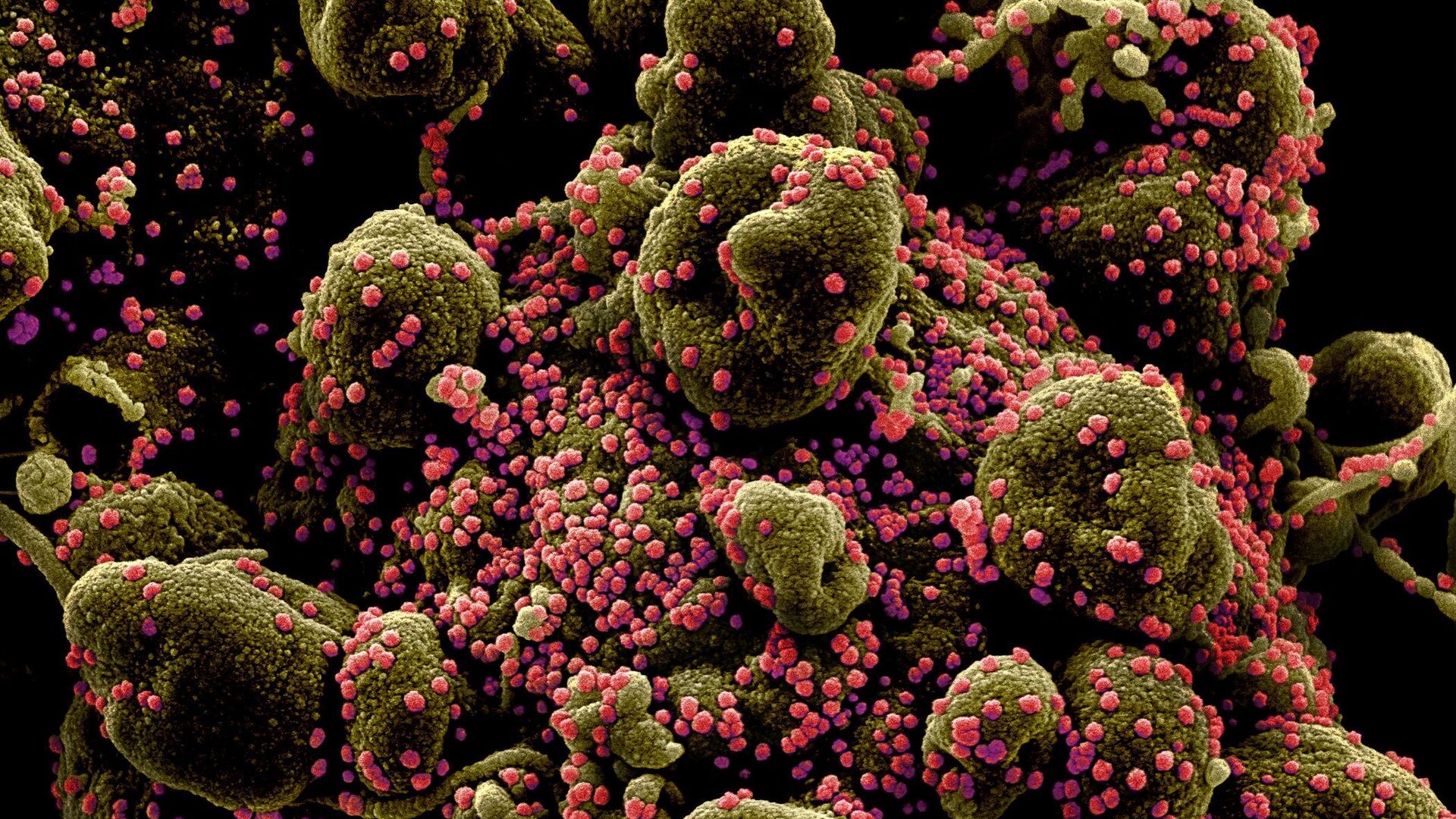https://sputnikglobe.com/20230411/biden-signs-bill-ending-us-covid-19-national-emergency---white-house-1109336084.html
Biden Signs Bill Ending US COVID-19 National Emergency - White House
Biden Signs Bill Ending US COVID-19 National Emergency - White House
Sputnik International
US President Joe Biden signed legislation ending the national emergency in the United States associated with the COVID-19 pandemic, the White House said in a statement.
2023-04-11T01:14+0000
2023-04-11T01:14+0000
2023-04-11T01:12+0000
americas
us
national emergency
covid-19
joe biden
pandemic
https://cdn1.img.sputnikglobe.com/img/07e4/0c/13/1081509111_0:0:2100:1182_1920x0_80_0_0_406cae006207bdeabcf10ee2efd30120.jpg
Biden signed H.J.Res 7 on Monday, which ends the national emergency related to the COVID-19 pandemic, the White House said. The COVID-19 pandemic, caused by a novel coronavirus, killed more than 6.88 million people worldwide, with more than 676.6 million reported cases, according to Johns Hopkins University of Medicine data. Johns Hopkins stopped collecting data last month. The US government continues to assess the origins of the COVID-19 pandemic, with intelligence agencies pointing towards the Wuhan Institute of Virology or a nearby market as potential sources of the outbreak.Biden signed the GOP-authored bill after having initially opposed the measure out of fear the legislation would "create wide-ranging chaos and uncertainty the health care system." The US president earlier indicated in January that he would be ending emergency declarations in May.In addition to declaring an end to the national emergency, the legislation will also end various waivers for federal health programs under Medicare, Medicaid and CHIP. However, White House officials have underscored that the end of the emergency will have a limited impact on the US public as the administration has been working to drawdown initiatives.The Republican-back measure cleared the US House despite 200 Democrats voting against the measure, and was later approved by the Senate in a bipartisan 68-23 vote.
https://sputnikglobe.com/20230301/buildup-for-war-us-spins-covid-lab-leak-narrative-to-pin-blame-on-china-1107899842.html
americas
Sputnik International
feedback@sputniknews.com
+74956456601
MIA „Rossiya Segodnya“
2023
Sputnik International
feedback@sputniknews.com
+74956456601
MIA „Rossiya Segodnya“
News
en_EN
Sputnik International
feedback@sputniknews.com
+74956456601
MIA „Rossiya Segodnya“
Sputnik International
feedback@sputniknews.com
+74956456601
MIA „Rossiya Segodnya“
joe biden, us, covid-19 pandemic, white house statement
joe biden, us, covid-19 pandemic, white house statement
Biden Signs Bill Ending US COVID-19 National Emergency - White House
WASHINGTON (Sputnik) - US President Joe Biden signed legislation ending the national emergency in the United States associated with the COVID-19 pandemic, the White House said in a statement.
Biden signed H.J.Res 7 on Monday, which ends the national emergency related to the COVID-19 pandemic, the White House said.
The COVID-19 pandemic, caused by a novel coronavirus, killed more than 6.88 million people worldwide, with more than 676.6 million reported cases, according to Johns Hopkins University of Medicine data. Johns Hopkins stopped collecting data last month.
The US government continues to assess the origins of the COVID-19 pandemic, with intelligence agencies pointing towards the Wuhan Institute of Virology or a nearby market as potential sources of the outbreak.
Biden signed the GOP-authored bill after having initially opposed the measure out of fear the legislation would "create wide-ranging chaos and uncertainty the health care system." The US president earlier indicated in January that he would be ending emergency declarations in May.
In addition to declaring an end to the national emergency, the legislation will also end various waivers for federal health programs under Medicare, Medicaid and CHIP. However, White House officials have underscored that the end of the emergency will have a limited impact on the US public as the administration has been working to drawdown initiatives.
The Republican-back measure cleared the US House despite 200 Democrats voting against the measure, and was later approved by the Senate in a bipartisan 68-23 vote.



